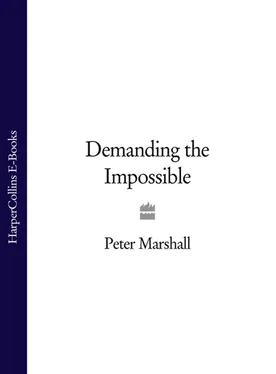Unknown to Rabelais, there was another writer in France at the same time asking why free-born people should so readily accept their servitude. His name was Etienne de la Boétie, and he was born in 1530, the son of a judge with powerful connections in Church and State. He went on to study law and became a counsellor in the Bordeaux parliament (assembly of lawyers) where he called for religious toleration for the persecuted Protestant Huguenots. A poet and classical scholar, he also was a friend of the great humanist Montaigne. In his short life, la Boétie appeared a devout member of the Catholic Church and a loyal subject to the king but as young man he wrote sometime between 1552 and 1553 a Discours de la servitude volontaire , one of the great libertarian classics. He undoubtedly admired all his life those classical writers who had defended liberty in ancient Greece and Rome. After his death in 1563, Montaigne, who was his literary executor, was too prudent and timid to publish the manuscript, although he admitted it was written ‘in honour of liberty against tyrants’. He dismissed it as a youthful folly, a mere literary exercise, yet he admitted that la Boétie had believed in every word of it and would have preferred to be born in the liberty of Venice than in France.
The first full version of the essay appeared in Holland in 1576 and was used as propaganda by the Huguenots against the Catholic regime. It went largely unnoticed until the eighteenth century when it was read by Rousseau and reprinted at the beginning of the French Revolution. Since then it has been recognized as a minor classic of political theory for asking the fundamental question of political obligation: why should people submit to political authority or government?
La Boéne’s answer contains not only a powerful defence of freedom but his bold reasoning led him to conclude that there is no need for government at all. It is only necessary for humanity to wish that government would disappear in order for them to find themselves free and happy once again. People however choose to be voluntary slaves: ‘liberty alone men do not want, not for any other reason, it seems, except that if they wanted it, they would have it. It is as if they refuse to have this fine acquisition, only because it is too easy to obtain.’ 2
Although the style is rhetorical and repetitive, it is possible to discern three stages in la Boétie’s argument. In the first part he argues that government exists because people let themselves be governed, and dissolves when obedience ends. In the next part he asserts that liberty is a natural instinct and a goal, and slavery is not a law of nature but merely a force of habit. Finally, it is shown that government is maintained by those who have an interest in its rule.
La Boétie bases his case on natural right theory. He believes that ‘if we lived with the rights that nature has given us and with the lessons it teaches us, we would naturally obey our parents, be subjects to reason, and serfs of nobody’. 3 There is simply no point discussing whether liberty is natural since it is self-evident; one cannot keep anyone in servitude without harming them. This is even true of animals, whether they be elephants or horses.
Although he does not accept the social contract theory of government, he suggests that people do behave as if there were a ‘contract’ to obey their rulers. But since their obedience is voluntary, they are equally able to act as if there were no contract, and thus disobey their rulers. The crucial point is that the people are the source of all political power, and they should choose to allocate this power to rulers or to remove it as they see fit. As such, la Boétie clarifies the nature of political obligation and develops the notion of popular sovereignty.
In his essay, he celebrates that ‘liberty which is always such a pleasant and great good, that once lost, all evils follow, and even the goods which remain after it, lose entirely their taste and savour, corrupted by servitude’. 4 He then condemns tyrants and bad princes in swelling rhetoric full of classical allusions. In his view there are three types of tyrant: those who possess a kingdom through the choice of the people; those by force of arms; and those by hereditary succession. Although he thinks the first kind of tyrant is the most bearable, he nevertheless believes that all three types have the same effect: they swallow people up and hold them in servitude. And once enslaved, people forget their freedom so quickly and profoundly that ‘it seems impossible that they will awake and have it back, serving so freely and gladly that one would say, to see them, that they have not lost their liberty, but won their servitude’. 5
The principal reason for this voluntary servitude according to la Boétie is custom: ‘the first reason why men serve voluntarily is because they are born serfs and are brought up as such.’ 6 The support and foundation of tyranny moreover is not the force of arms but rather the self-interest of a group of people who find domination profitable: ‘they want to serve in order to have goods’. 7 The result is that ‘these wretches see the treasures of the tyrant shine and look in amazement at the rays of his boldness; and, attracted by this light, they draw near, and do not see that they put themselves in the flame which can only burn them.’ 8 But there is a way out. Just as people give power to their rulers, they can take it back. Although he does not say as much, the whole drift of la Boétie’s essay is to imply the need for political disobedience. 9
Not long after the publication of Machiavelli’s handbook for unscrupulous statecraft The Prince (1532), la Boétie brilliantly demonstrated the economic and psychological grounds for voluntary servitude. Human beings are born free and yet put chains on themselves and their children. They could cast them off if they so wished, but they do not. As a result, voluntary slaves make more tyrants in the world than tyrants make slaves. Montaigne rightly recognized the subversive message of la Boétie’s essay – and wrongly tried to suppress it.
This highly original work does not easily fit into any one tradition of political thought. Its analysis of political power lay the groundwork for the concept of civil disobedience, and as such it can take an honoured place within the pacifist tradition. Emerson knew of it and wrote a poem to its author. Tolstoy was the first important anarchist to recognize the importance of the essay and translated it into Russian. Max Nettlau is correct to include la Boétie in his list of early thinkers who envisaged a society without laws and government. 10 Since then the anarchists Gustav Landauer, Rudolf Rocker, Bart de Ligt, and Nicolas Walter have all recognized its honourable place within any history of anarchist thought. More recently, it has also appealed to libertarians of the Right like Murray N. Rothbard who appreciate its emphasis on personal initiative and improvement. 11 There can be no doubt that the Discours de la servitude volontaire reveals a profound anarchist sensibility and orientation.
In France in the seventeenth century, the process of creating a nation out of the many regional communities gathered momentum. Louis XIV in particular struggled to unite the country in a strongly centralized State symbolized in the person of the monarch. He proudly announced: ‘L ’État, c’est moi’ . But not all were impressed by his passion for luxury and war which led to the neglect of agriculture and the misery and ignorance of the peasants.
Since it was too dangerous to express radical views directly, libertarian thinkers used the device of an imaginary voyage to a Utopia to criticize existing society and suggest alternative institutions and practices. Gabriel de Foigny for one knew only too well how difficult it was to entertain radical ideas and to act independently. Born in Ardennes in 1630, he entered a monastery of the Order of the Cordeliers (Franciscans) and became a Catholic preacher. His unruly behaviour however led him to be unfrocked. He changed his religion and moved to Calvinist Geneva, but again he soon fell into difficulties with the authorities because of his penchant for girls and wine. On one occasion, he is said to have vomited in front of the altar while taking the service in a Temple. With little chance of becoming a solid French or Swiss citizen, he published anonymously in 1676 Les Aventures de Jacques Sadeur dans la découverte de la Terre Australe , translated in a truncated version in 1693 as A New Discovery of Terra Incognita Australis . The work landed him in jail, although he was eventually released on indefinite bail.
Читать дальше












